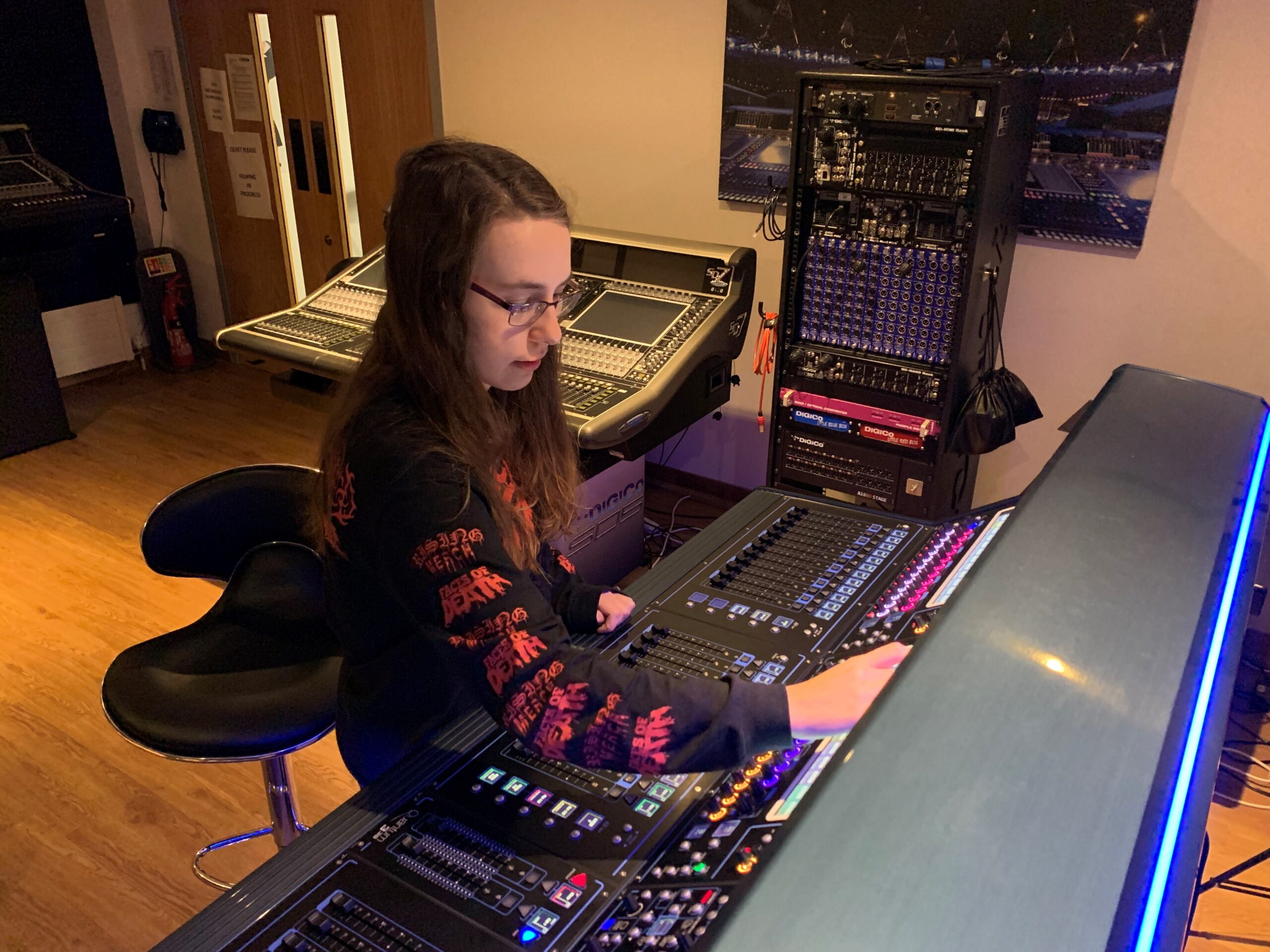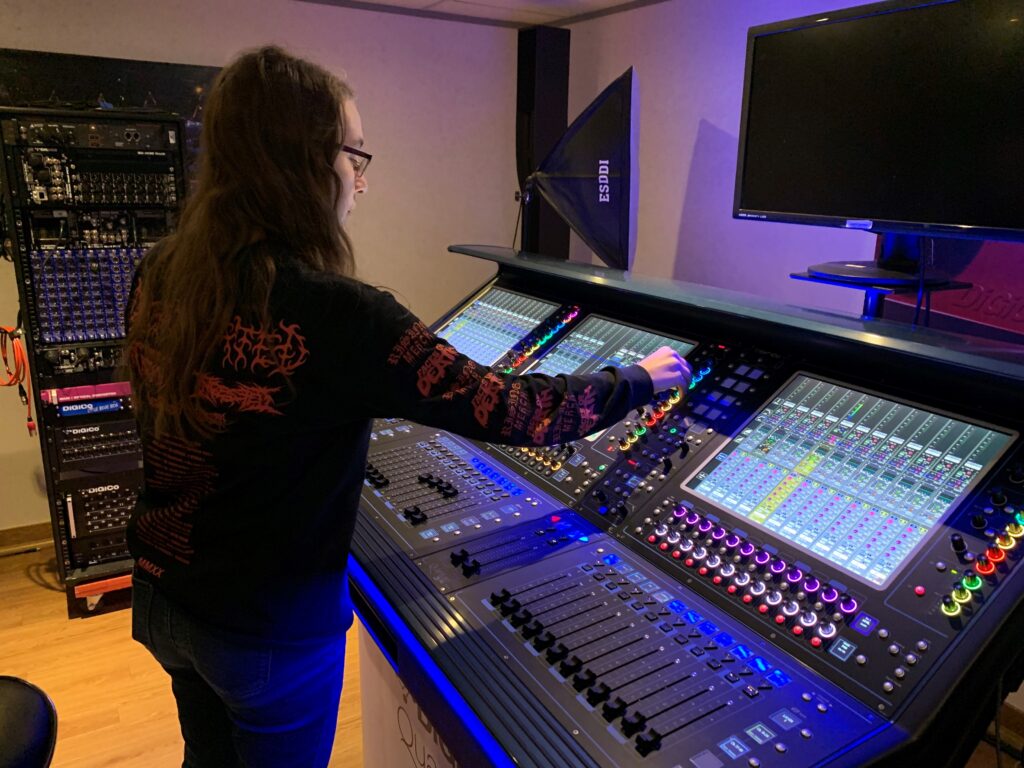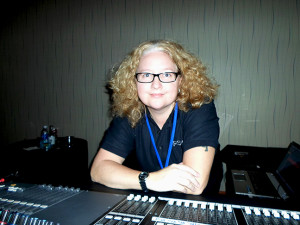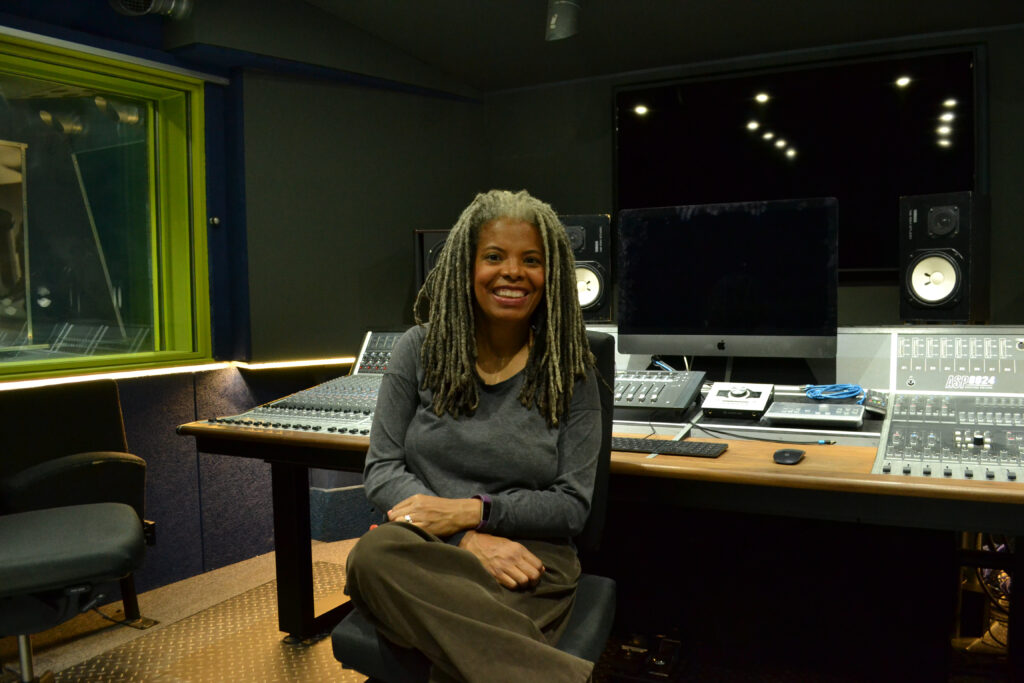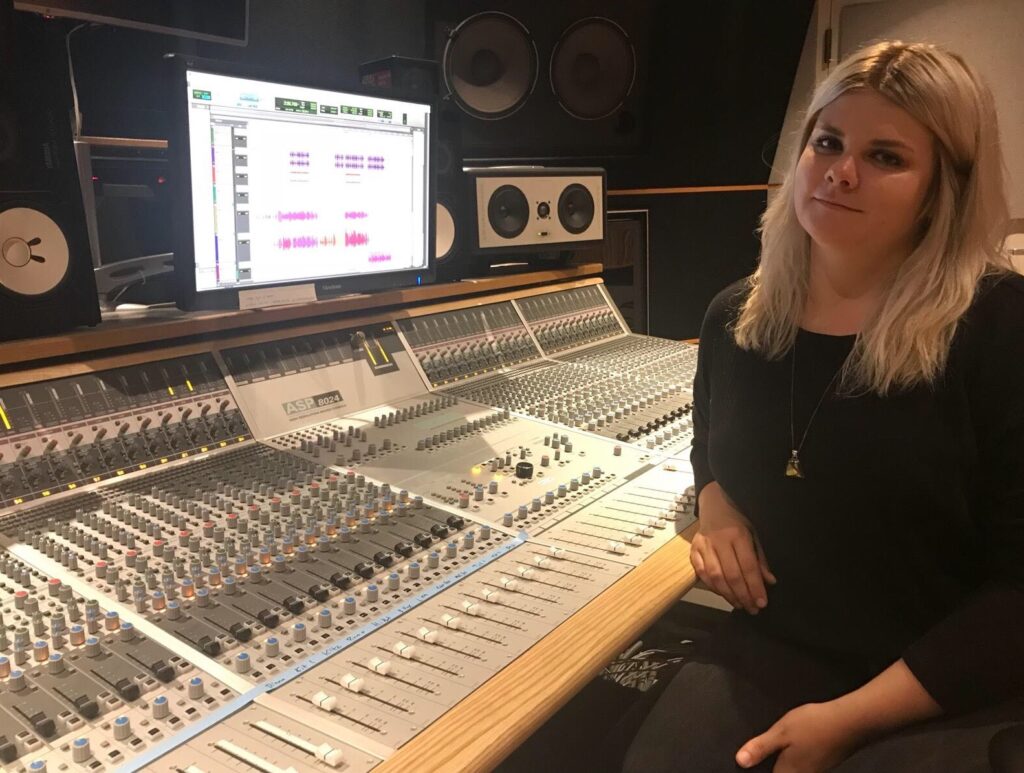Mollie started at DiGiCo on the R&D team during her placement year while attending the University of Surrey. Before finishing the year, she let DiGiCo know that she would love to come back after she finished her degree and she did when they offered her a job in the sales department. At DiGiCo she got an insight into the R&D side of the company that most of the Sales team haven’t had. Things like knowing how the different parts of the console engines work together and how the code that the software department writes works. From knowledge, she can track faults down more easily and have a better idea about which part of the console is causing it. She also understands what’s possible in the console in terms of new features, as well as what sort of system configurations are possible and more importantly why they are or aren’t possible.
Early Life
Music has been a big part of Mollie’s life, she started taking music lessons and learning to play the trumpet when she was eight. She would join different ensembles and spend most of the week in rehearsals and lessons, and she got the opportunity to tour Europe a couple of times and perform at the Royal Albert Hall. Around the age of 12, Mollie developed a love for metal music and would teach herself how to play the guitar.
Then Mollie got a MacBook and discovered GarageBand
“I found an app with a picture of a guitar as the logo. I thought it looked cool so I clicked on it. I’m sure that anyone who’s into audio and has used a Mac will know that this was GarageBand. After some playing around on the app I realized that I could use it to record my guitar, add drums and write my own music. I started watching YouTube tutorial videos and trying to learn about what else I could do with the software. It was this insight into audio that led me to study Music Tech in Sixth form as one of my four subjects.”
Mollie would study Maths, Further Maths, Physics, and Music Tech at Sixth form. “As part of the Music Tech course we did work in the studio and I also ran the live sound team for the Sixth form through this. It was during that time when I realized there were careers in audio, including technical ones that could incorporate with Math and Physics that I enjoyed.” She would then enroll at the University of Surrey where she would take the Tonmeister course, which included music and sound recording, and would graduate with a BSc 2.1
Career Start
I got my start with my university placement year which I did at DiGiCo. When I started University, I wanted to work in a recording studio but after doing some recording sessions at Uni, I soon realized that I didn’t enjoy them enough to want to do it as a job. I’d spent far too many nights in the studio at 4 am waiting for bands to be creative when I just wanted to go to bed. I had to start looking at other audio careers and saw a technical placement at DiGiCo. I’d never heard of them but thought that my experience in college doing live sound could make me a suitable candidate for the job. I applied, got the job, and then fell in love with the live audio industry.
How did your early internships or jobs help build a foundation for where you are now?
For my placement year at DiGiCo, I was working in the R&D team. My job was to test the consoles to find software bugs in the software updates or new consoles. As you’d imagine, after a year of using DiGiCo consoles every day, I learnt how to use them inside-out. I also got an insight into the R&D side of the company that most of the Sales team haven’t had. Things like knowing how the different parts of the console engines work together and how the code that the software department writes works. From this, I can track faults down more easily and have a better idea about which part of the console is causing it. I can also understand what’s possible in the console in terms of new features, as well as what sort of system configurations are possible and more importantly why they are or aren’t possible.
What did you learn interning or on your early gigs?
I learnt a lot of technical stuff – things like the difference between SMUX and Hi-Speed MADI, how to set up networks, how to use Dante, etc.
Did you have a mentor or someone that really helped you?
The whole team at DiGiCo was really supportive and willing to help out with any problems or questions I had. The team is like a big family and everyone made sure that I was getting on alright when I joined. They’ve also made sure to introduce me to people and help me start networking.
Career Now
What is a typical day like?
My days vary so much. Some days I’ll be writing technical data sheets for our products or adding technical bits to the website, some days I’ll be showing sound engineers how to use our consoles, or even doing some testing work for R&D. Since coronavirus hit, we’ve really increased the number of videos and webinars that we are creating to make up for the fact that we can’t visit customers or have them come into the demo room. I’ve become heavily involved in making videos so most days over the past few months I’ve been either writing scripts for videos, filming, video editing, or setting up our video kit for webinars.
How do you stay organized and focused?
I find keeping lists very useful. It helps me visualize everything that I have to do and prioritize the things that need doing more urgently.
What do you enjoy the most about your job?
I get the chance to meet all sorts of people and travel but without having to live on the road for weeks at a time. There’s also plenty of variation in my work to keep things interesting and I’m constantly learning new things. I also enjoy getting to see our consoles being used out and about. Going to gigs has been a hobby of mine since I was young, and I love going to see my favorite bands and seeing them use our stuff.
What do you like least?
Spending days on end editing videos can get a bit tedious. I enjoy doing it but I don’t like being sat at my desk for too long!
What is your favorite day off activity?
Either spending the day playing guitar or working on a guitar-building project.
What are your long-term goals?
I’d like to stay in the audio industry and continue meeting people and making lifelong friends.
What if any obstacles or barriers have you faced?
On a few occasions when talking to people at trade shows and exhibitions etc., I’ve felt like they’ve underestimated my technical knowledge because I’m a young woman. The audio industry has always been male-dominated but there are still very few women on the technical manufacturing side.
How have you dealt with them?
Just smile and prove them wrong!
Advice you have for other women and young women who wish to enter the field?
It’s said all the time, but it’s true that the only stupid questions are the ones that don’t get asked. If you’re unsure, just ask. It’s better to ask a question and get something right than to not ask and get something wrong.
I’d also recommend keeping a little notepad with you. When you learn something new and interesting/useful, write it down. That way, it solidifies it in your head but also means that you can look back on it in the future if you need a refresh. I’m forever referring back to my notepad and even getting requests from other people to have a look at it.
Must have skills?
You’ve got to be good at listening in this industry. Whether it’s listening to your mix in order to make it better or listening to other people. When I’m showing people how to use our consoles, I think the most important thing is to listen to them. Find out what they already know, what they don’t know, find out what sort of things they want to do with the console so that you can focus on features that will benefit them. There is no ‘one size fits all’ when it comes to console demos and training.
Favorite gear?
I guess I have to pick a DiGiCo console here! My favorite is the Quantum338. It’s a gorgeous-looking console, the screens are big and bright, and it has all of the great features that come with the Quantum consoles. I’m a big fan of the SD12 but miss the Mustard Processing and Spice Rack when I’m using it. The DMI-KLANG is also a personal favorite when I’m using a console like the Quantum338 or the SD12. So much power on a tiny card. After having heard the immersive mixing from a musician’s point of view, I understand why people don’t want to go back to stereo after having used it.
More on Mollie
